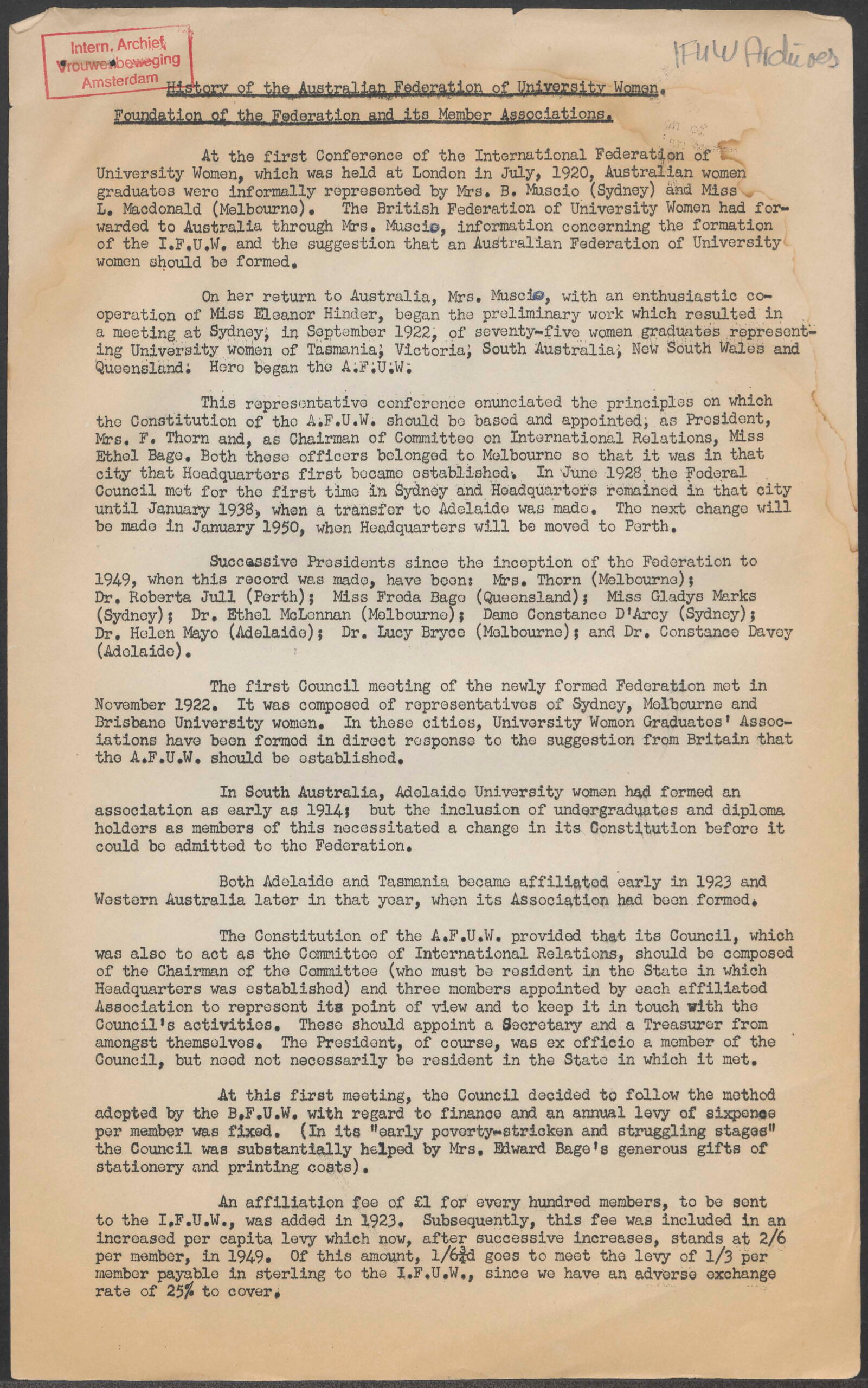History: The International Federation of University Women was founded in 1919 after World War I by women graduates who believed in the importance of working together for peace, international understanding and friendship. The women believed that, through their university education, they had developed the skills and knowledge to contribute to the betterment of society.
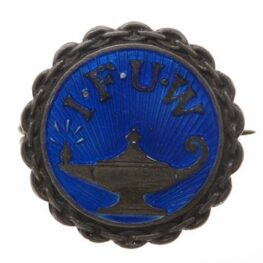
-
1920
The Australian Federation of University Women (AFUW) was established by a small group of women graduates in 1920, and from that time they maintained links with graduate women throughout Australia and internationally. The Australian Federation of University Women (AFUW) was formally established at the inaugural conference held in Sydney in September 1922. It is an umbrella organisation for the state-based federations of university and graduate women and provides a means for the national organisation of these bodies.
-
1920
-
1977
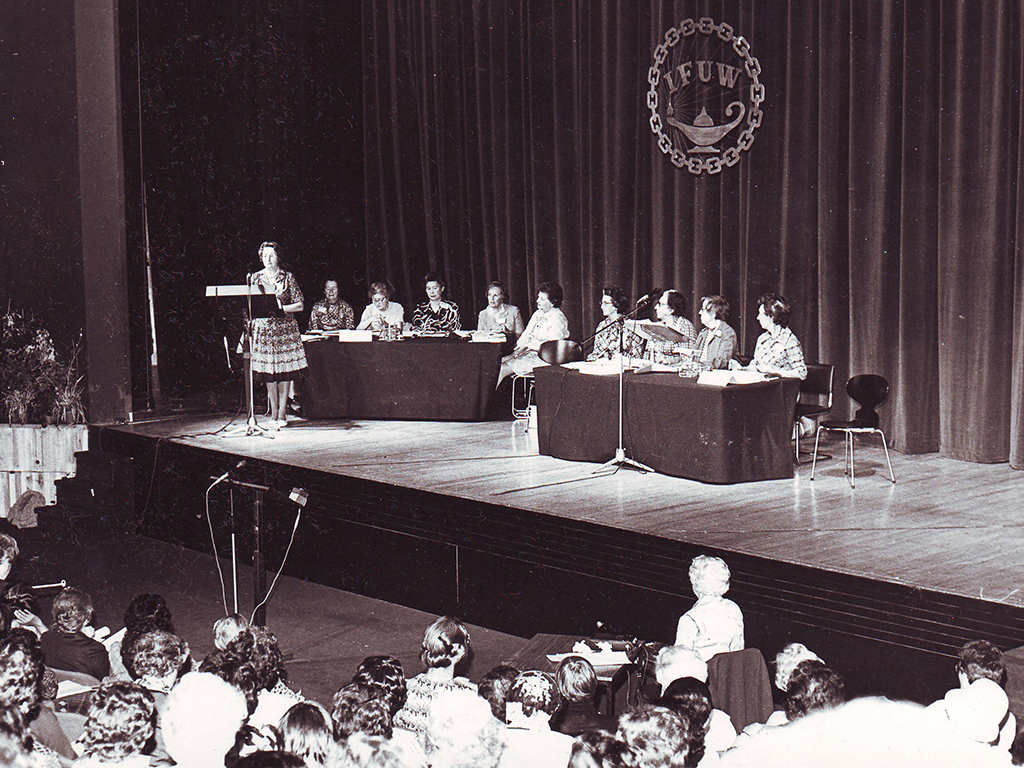
19th IFUW Conference, Stirling, Scotland – August 1977 (Source: http://hdl.handle.net/2440/92764)
-
1988
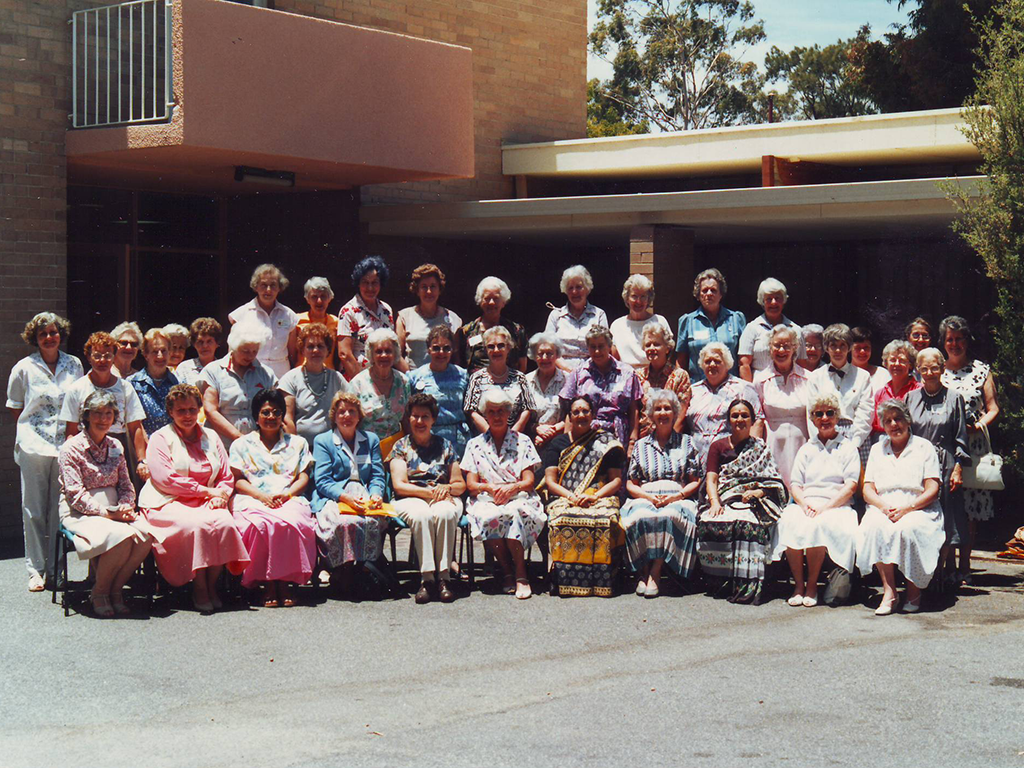
AFUW Conference 1988 – Delegates (Source: http://hdl.handle.net/2440/93849)
-
2009
In December 2009, as a result of a motion passed at the IFUW Triennial Conference in Manchester, and in recognition of a change in its membership criteria to include graduates from all Institutions of Higher Education, with an undergraduate degree or its equivalent from any university or institution of higher education, the Australian Federation of University Women changed its name to become the Australian Federation of Graduate Women (AFGW).
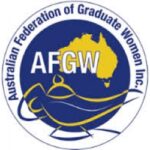
-
AFGW has been involved in the setting up of committees for special projects, the lobbying of Government departments, the presentation of submissions to Government and the holding of conferences, originally biennially but now triennially. AFGW also administers a number of fellowships, grants and bursaries, which are awarded to further the studies of successful applicants for post-graduate study. AFGW’s State and Territory Associations (STAs) also offer a variety of fellowships, grants and bursaries.
-
Over the years, AFGW has been involved in a number of important issues relating to the education and employment of women. Activities have included campaigns to obtain equal pay and equal employment opportunities for women and to eliminate discrimination against women in both education and the workforce.
-
2019
In April 2019, AGFW moved from a federated structure to a national organisation with independent members and was renamed Australian Graduate Women (AGW) Inc.
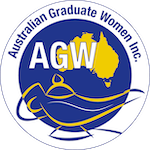
-
2019
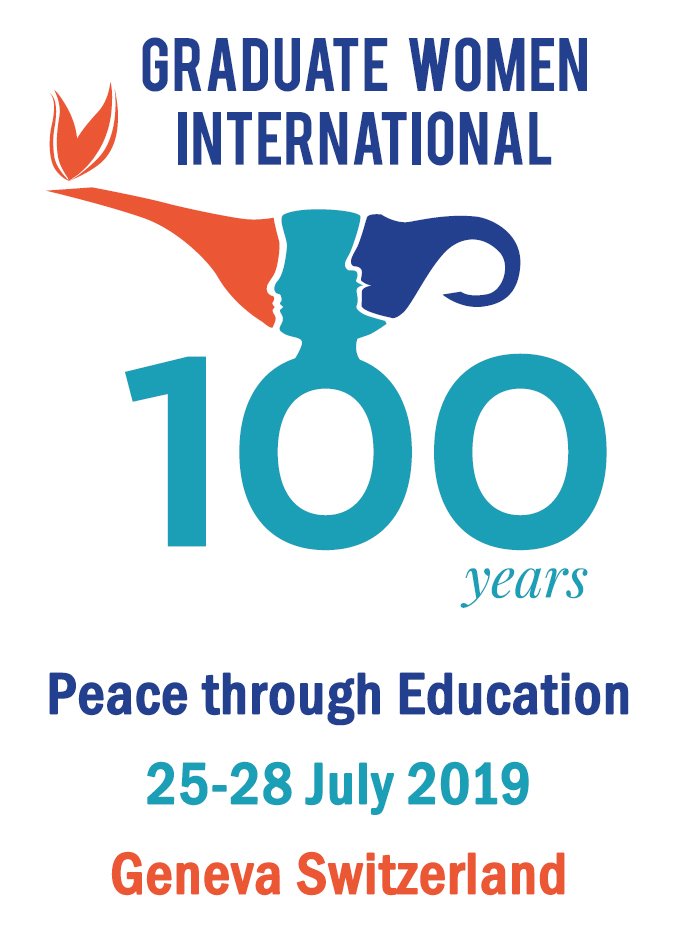
-
AGW is one of the member nations of the Graduate Women International (GWI), which has consultative status with the United Nations and its specialised agencies, including UNESCO and ECOSOC. AGW thus has a voice through GWI on international matters of critical importance to the protection of human rights and the status of women and girls. Members enjoy fellowship and intellectual stimulation by sharing news and views with the international community through the GWI Triennial Conference and the GWI Networks (Connections, Advocacy and Young Members), on-line discussion forums, bi-monthly newsletters Update Newsletters and the members’ only GWI inFocus which is published every two months.
-
The informal GWI Pacific Graduate Women’s Network (PGWNet) gives AFGW members a special connection to other Pacific nations such as: Fiji, New Zealand, Papua New Guinea, and Vanuatu.
-
AGW has a national voice on women’s affairs both independently and through its membership of economic Security4Women Inc. (eS4W) and Equality Rights Alliance (ERA), two of six National Women’s Alliances funded for three years from 2017, to actively engaging with the Australian Government, through the Office for Women on policy issues as part of a better more informed and representative dialogue between women at the civil society level and government.
